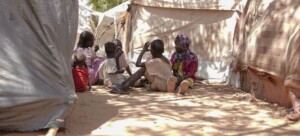Covid-19: Caution urged in Sudan before Eid El Adha holiday
Precautionary measures against the spread of coronavirus will be maintained across the country for the next three weeks, as the number of new recorded cases remains at zero in most of Sudan’s states.
 Latest Ministry of Health Covid-19 report published on 27 July 2020 (MoH)
Latest Ministry of Health Covid-19 report published on 27 July 2020 (MoH)
Precautionary measures against the spread of coronavirus will be maintained across the country for the next three weeks, as the number of new recorded cases remains at zero in most of Sudan's states.
No new cases of Covid-19 have been recorded in 14 out of 18 states in Sudan in the past two weeks, according to a report by Sudan’s High Committee of Health Emergencies yesterday.
According to the Ministry of Health, 72 new Covid-19 cases, including five deaths, were recorded as of July 27, bringing the total number of infections since the beginning of the pandemic to 11,496. The number of deaths recorded is 725 and the number of recorded recoveries has reached 6001.
Siddig Tawir, member of the Sovereign Council and deputy-chairman of the High Committee of Health Emergencies, cautioned against abandoning social distancing and other precautionary measures, especially during the five day Eid El Adha (the Muslim Feast of the Sacrifice beginning) holiday. Eid El Adha begins on Friday this year, and is a public holiday in Sudan.
The Ministry of Religious Affairs directed mosques to adhere to all health directives during the Eid El Adha to avoid the spread of coronavirus.
Suleiman Bashshar, the undersecretary of the ministry, called on imams to shorten the prayer time by reading short Suras from the Koran and shortening the sermon to the shortest possible time.
He instructed worshipers to wear face masks or cover their noses and mouths with their turban or garment. Each individual worshiper should carry his own prayer mat as much as possible to avoid infection.
Bashshar also said that the Sudanese Fiqh (Islamic jurisprudence) Academy issued a fatwa authorising people to choose not to perform Friday prayers in groups in mosques because of the coronavirus pandemic.
Travel ban
On July 7, the lockdown in Khartoum was eased. Curfew hours were reduced from 13:00-06:00 to 18:00-05:00, and the bridges between Khartoum, Omdurman, and Khartoum North were reopened for traffic. Flights to and from Khartoum International Airport resumed partially.
Two weeks later, 10,992 coronavirus patients were recorded in Sudan, showing “a noticeable increase” in the number of Covid-19 cases. The High Committee for Health Emergencies therefore extended the travel ban from and to Khartoum.
Radio Dabanga’s editorial independence means that we can continue to provide factual updates about political developments to Sudanese and international actors, educate people about how to avoid outbreaks of infectious diseases, and provide a window to the world for those in all corners of Sudan. Support Radio Dabanga for as little as €2.50, the equivalent of a cup of coffee.












 and then
and then